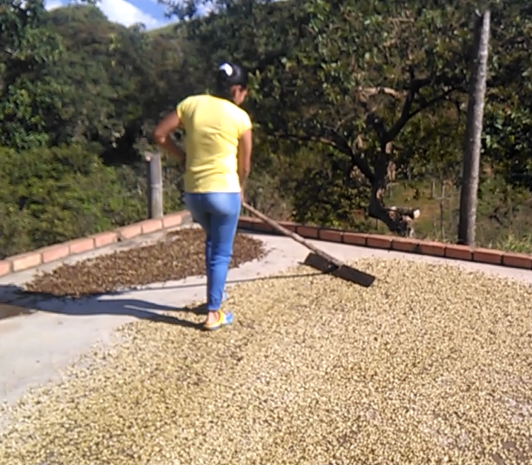This project aims to implement a suite of three technologies: gasification-fuelled cookstoves, tubular plug-flow biodigesters and gasification-fuelled coffee dryers. Using a participative process, six of these demonstration suites will be implemented in five departments of Colombia: Santander (2), Meta, Antioquia, Cauca and Caldas.
 Colombia's coffee-growing region is the world's third most productive, providing a livelihood for over 560,000 families. By taking advantage of the organic waste generated by coffee cultivation and common practices of diversified production, biomass-fuelled renewable energy (RE) technologies offer rural families the chance to improve their quality of life and economic productivity while implementing sustainable and integrated practices.
This project aims to implement a suite of three technologies: gasification-fuelled cookstoves, tubular plug-flow biodigesters and gasification-fuelled coffee dryers. Using a participative process, six of these demonstration suites will be implemented in five departments of Colombia: Santander (2), Meta, Antioquia, Cauca and Caldas.
The specific objectives of the project are:
Colombia's coffee-growing region is the world's third most productive, providing a livelihood for over 560,000 families. By taking advantage of the organic waste generated by coffee cultivation and common practices of diversified production, biomass-fuelled renewable energy (RE) technologies offer rural families the chance to improve their quality of life and economic productivity while implementing sustainable and integrated practices.
This project aims to implement a suite of three technologies: gasification-fuelled cookstoves, tubular plug-flow biodigesters and gasification-fuelled coffee dryers. Using a participative process, six of these demonstration suites will be implemented in five departments of Colombia: Santander (2), Meta, Antioquia, Cauca and Caldas.
The specific objectives of the project are:
- To conduct a detailed baseline study on partner organisations, monitoring parameters, performance assessment and potential users
- To develop local management models for the proposed technologies
- To construct and implement the cookstoves, biodigestion systems and coffee dryers, and to undertake hands-on training for operators
- To offer experience exchanges between the different project sites, to monitor and evaluate project experiences and to analyse socio-economic and environmental impacts
Projects with same technology
Removing Barriers to Greenhouse Gas Mitigation in Medium-Scale Agricultural Livestock Activities in Mexico
Exchange: Supporting the Energy Switch of the Garment Industry in Cambodia through Increased South-South Knowledge Exchange among the Value Chain Stakeholders
To leverage successful technologies and best practices from the region through (1) peer-to-peer exchanges and (2) a capitalisation conference. The conference will bring together all the supply chain stakeholders, including rice husk producers, garment factory owners and international brands who can play a role in adapting their purchasing specifications according to environmental considerations.
Projects in same country
Exchange: Community Exchange and Capacity-Building in Energy Alternatives for Food Production
The main objective was to link the concepts of energy sovereignty and food sovereignty using a two-pronged approach: the provision of hands-on capacity-building in sustainable energy technologies for food production and setting up a participatory dialogue among civil society organisations in Colombia.
An Integrated Biogas-Water System for Sustainable Water Heating and Food Production in Arid Environments
This project aims to address the challenge of water scarcity in mountainous regions of Colombia by introducing an integrated biogas-water system at a hotel in the region.